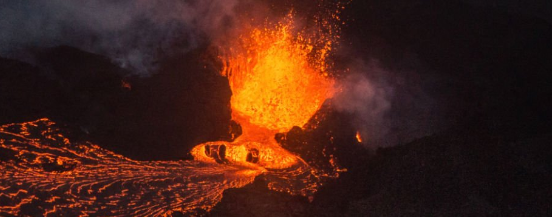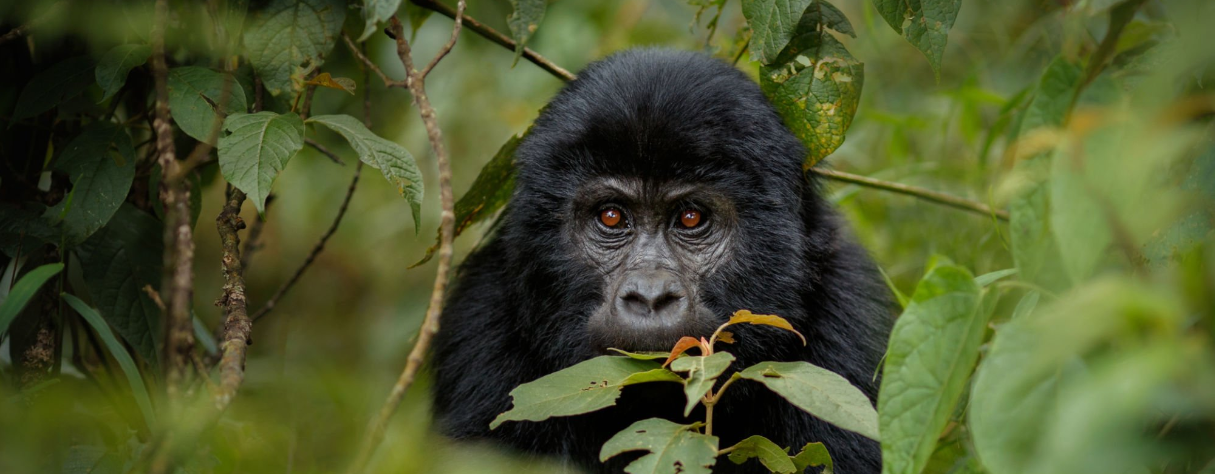The Democratic Republic of Congo (DRC), located in Central Africa, is a land of unparalleled natural beauty and diverse wildlife. The country is an emerging safari destination that has gained recognition for its vast array of flora and fauna, including rare and endemic species. With its expansive rainforests, mighty rivers, and towering mountains, the DRC provides a captivating backdrop for an authentic African safari experience.
Geography and Landscape
The DRC is the second-largest country in Africa, covering approximately 2.34 million square kilometers. Its geography is incredibly diverse, encompassing dense rainforests, savannas, wetlands, and volcanic mountains. The Congo River, one of Africa’s major rivers, winds through the heart of the country, adding to its natural allure. Key Geographical Features:- Rainforests: The Congo Basin, often referred to as the “Green Heart of Africa,” is one of the world’s most significant rainforest areas, covering a substantial portion of the DRC.
- Virunga Mountains: These volcanic mountains are a prominent feature, known for their awe-inspiring landscapes and as a habitat for the critically endangered mountain gorillas.
- Great Lakes Region: The DRC is home to several of Africa’s Great Lakes, including Lake Tanganyika, Lake Kivu, and Lake Albert, offering stunning lakefront scenery and diverse aquatic life.
Wildlife and Biodiversity
The DRC boasts a remarkable diversity of wildlife, making it a prime safari destination. Its ecosystems are inhabited by a vast range of animal species, including both iconic and lesser-known fauna. Some of the most notable wildlife includes:- Mountain Gorillas: The Virunga Mountains are home to a significant population of critically endangered mountain gorillas, making gorilla trekking a major attraction for visitors.
- Bonobos: The DRC is the only country where bonobos, a species of great ape closely related to chimpanzees, are found in the wild.
- Okapi: The okapi, a rare and elusive forest-dwelling mammal, is endemic to the DRC and is often called the “forest giraffe.”
- Elephants, Lions, and Leopards: The country hosts a diverse array of iconic African wildlife, including elephants, lions, leopards, buffaloes, and numerous antelope species.
- Birdlife: With over 1,000 bird species, the DRC is a haven for birdwatchers, showcasing various endemic and migratory birds.
National Parks and Reserves
The DRC is home to several protected areas, national parks, and reserves, conserving its unique biodiversity and providing a platform for ecotourism. These parks offer diverse landscapes and exceptional opportunities to witness wildlife in their natural habitats. Some key national parks and reserves include:- Virunga National Park: Famous for its mountain gorillas and diverse ecosystems, Virunga is Africa’s oldest national park and a UNESCO World Heritage Site.
- Kahuzi-Biega National Park: Known for its Eastern lowland gorillas and lush rainforests, this park is another UNESCO World Heritage Site and a critical conservation area.
- Garamba National Park: Recognized for its diverse wildlife, including elephants and the rare Kordofan giraffe, Garamba is also a UNESCO World Heritage Site.
- Salonga National Park: This vast wilderness area, a UNESCO World Heritage Site, is home to a range of species and is one of Africa’s largest tropical rainforest reserves.
- Maiko National Park: Situated in the Congo Basin, Maiko is known for its biodiversity, including a variety of primates and bird species.
Cultural Experiences
In addition to its natural wonders, the DRC offers unique cultural experiences, providing visitors with insights into the diverse ethnic groups and their traditions. Interaction with local communities can include visits to traditional villages, cultural performances, and learning about indigenous customs. Key cultural aspects include:- Ethnic Diversity: The DRC is home to over 200 ethnic groups, each with its own language, traditions, and heritage.
- Music and Dance: Music is an integral part of Congolese culture, and traditional dances are vibrant expressions of joy and social gatherings.
- Culinary Delights: Trying local cuisine is a must, experiencing the flavors and specialties of the DRC, often incorporating ingredients like plantains, cassava, and various meats.
Safari Activities
Safaris in the DRC offer a variety of activities to immerse visitors in the natural and cultural wonders of the country. Some popular activities include:- Gorilla Trekking: A once-in-a-lifetime experience, trekking to observe mountain gorillas in their natural habitat in the Virunga Mountains or Kahuzi-Biega National Park is a highlight of a DRC safari.
- Game Drives: Exploring the savannas of national parks such as Garamba and Upemba offers the chance to spot elephants, antelopes, big cats, and a variety of birdlife.
- Hiking and Trekking: The DRC’s diverse landscapes provide excellent opportunities for hiking and trekking adventures, including climbing the Virunga Mountains or exploring the rainforests of Salonga National Park.
- Boat Safaris: Cruising along the Congo River or the Great Lakes allows for a unique perspective of the DRC’s landscapes and wildlife, particularly aquatic species and waterfowl.
Conservation Efforts
Conservation is a critical focus in the DRC, given the country’s incredible biodiversity and the need to protect it for future generations. Various organizations and initiatives work towards conserving habitats, wildlife, and promoting sustainable tourism. Some efforts include:- Anti-Poaching Initiatives: Programs dedicated to combatting poaching and illegal wildlife trafficking are active in many national parks to protect endangered species like elephants and gorillas.
- Community Involvement: Engaging local communities in conservation efforts through education, employment opportunities, and revenue sharing helps ensure sustainable practices and wildlife protection.
- Ecotourism: Promoting responsible tourism and ecotourism initiatives generates funds for conservation and supports local communities, encouraging them to actively participate in protecting their natural heritage.


































